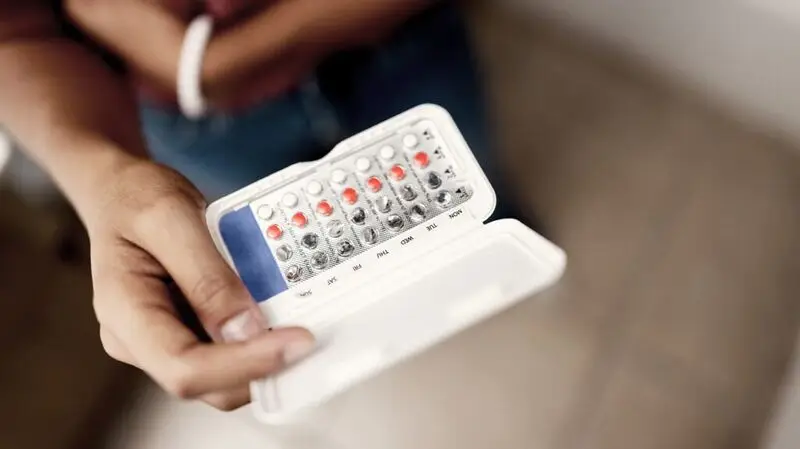
- Menopause involves distinct changes in hormone levels and bodily function.
- Using hormone therapy can help with certain symptoms related to menopause. Experts are interested in discovering the full risks and benefits of using hormone replacement therapy.
- Data from a recent trial suggests that short-term hormone therapy for menopause symptoms does not have long-term cognitive effects, whether harmful or beneficial.
Menopause involves the permanent stopping of menstruation. There is a distinct drop in estrogen that occurs in menopause.
Hormone therapy can help minimize certain menopause symptoms like hot flashes and vaginal dryness. Experts are interested in determining the full benefits of menopausal hormone therapy as well as the potential drawbacks.
A paper recently published in PLOS Medicine reported data from the Kronos Early Estrogen Prevention Study (KEEPS) Continuation study.
Researchers found that compared to placebo, women who received hormonal therapy for menopause symptoms did not experience better or worse cognitive outcomes 10 years after treatment.
The results suggest that short-term menopausal hormone therapy is not harmful to cognitive function but also does not appear to offer cognitive benefits.
Researchers wanted to learn more about the long-term effects of short-term hormone therapy. They note that this type of therapy is used near the menopausal transition period. The transition time before last menstruation is sometimes called perimenopause.
The research discussed in this paper involved women who had participated in a previous study called the Kronos Early Estrogen Prevention Study (KEEPS). This original research involved healthy, recently postmenopausal women with low cardiovascular disease risk who had intact uteruses.
Women in the original research received a placebo, a transdermal patch of estradiol, or oral conjugated equine estrogens. Participants receiving these hormonal options also received micronized progesterone. The original study continued for 4 years.
The current paper’s results discuss the findings from the KEEPS Continuation study, which followed up with participants around 10 years after the original study ended. In all, 275 participants had data related to cognitive outcomes from the original study and the KEEPS study.
For the KEEPS study, researchers collected data on medical history, mood, and cognitive outcomes. They also conducted several cognitive tests to examine participants’ memory, mental flexibility, and visual and auditory attention.
The KEEPS study also noted which participants had continued or used other menopausal hormone therapy since the end of the original study.
The results of the KEEPS study found similar cognitive outcomes among women who had received a placebo or hormone replacement therapy in the original trial.
Participants’ baseline data in the original study and performance throughout the original study were better indicators of cognitive function at long-term follow-up.
Thus, the results suggest that the use of hormone therapy in early menopause does not affect long-term cognitive function among women who have a low risk for cardiovascular disease.
Overall, the data helps to increase understanding regarding the relationship between short-term menopausal hormone therapy and cognitive function.
G. Thomas Ruiz, MD, a board certified OB-GYN and lead OB-GYN at MemorialCare Orange Coast Medical Center in Fountain Valley, CA, who was not involved in this study, commented on its findings to Medical News Today:
“This study looked at cognitive effects differently than many articles. Most studies approach the question from a standpoint that HRT [hormone replacement therapy] improves cognitive ability. There have been no studies that have definitively demonstrated this. But, it is good to know that there are also no negative cognitive effects when using HRT. It should be noted that long-term HRT is linked with a
lower risk of developing Alzheimer’s.”
The data does have some limitations. First, the follow-up study only included a fraction of the women in the original study.
However, researchers were able to include baseline data from these “nonparticipants” to help examine differences between the groups. Researchers acknowledge that there may be a risk for healthy survivor bias regarding participants who chose to participate in both studies.
Researchers of the KEEPS study could not fully examine all the effects of the lower number of participants in the KEEPS study, such as the cause of death for nonparticipants. The KEEPS study also faced struggles related to the COVID-19 pandemic.
Second, the original study had specific inclusion criteria that limited the data’s reach. For example, it excluded women with uncontrolled high blood pressure or who smoked. The average age of participants was also 52, and researchers only included women with low cardiovascular disease risk.
In addition, most of the study population in the KEEPS study was white. Thus, the results cannot be generalized, and more diversity may be helpful for future research.
Some data relied on self-reporting from participants, which is not always reliable. Researchers used the self-report of age rather than age data from the original KEEPS trial. In addition, they did not go into specific details about participants’ use of hormone therapy between the end of the original study and the start of the KEEPS study.
The data for the approximately 10-year follow-up only involved a one-time assessment, so additional long-term follow-up may be helpful. It may also take additional time to realize true cognitive effects.
Researchers noted that there could be several reasons why no cognitive effects were observed. For example, the dose and length of time of hormone therapy used in the original research might not have been big enough to affect cognitive function.
Finally, the current paper focuses on cognitive outcomes, but a future publication will cover the data collected from brain scans.
Despite these limitations, the study does point to the potential safety of short-term menopausal hormone therapy, which could increase its use in the future.
Rikki Baldwin, DO, an OB-GYN with Memorial Hermann, not involved in this research, told MNT:
“I hope this study helps clinicians and patients feel more comfortable in using hormonal therapy to treat menopausal symptoms. There should be a detailed discussion regarding timing, dosage, route, and length of treatment. But using hormonal replacement therapy should be considered first line therapy in appropriate patients.”
Doctors and other experts can offer guidance on menopausal hormone replacement therapy and whether it is appropriate in individual situations. As researchers in this paper note, the timing of menopausal hormone therapy is likely a critical piece of the puzzle.
Baldwin said short-term menopausal hormone replacement therapy has potential benefits, including reduction or resolution of hot flashes, insomnia, and mood shifts.
“It is not FDA approved, but it has been shown to improve bone Health,” Baldwin noted. “Anecdotally, hormone therapy was said to improve cognitive Health as well. Potential risks, as evidenced in previous studies, are worsening of cardiovascular disease, thromboembolic events, and failure of treatment,” she added.
Ruiz noted the following regarding the benefits of short-term menopausal hormone replacement therapy:
“Short term benefits are resolution of vasomotor symptoms and other symptoms such as insomnia, emotional lability. There may be improvements in libido. The urogenital tract functions better in the presence of estrogen, this includes the bladder and the vaginal mucosa […] Like any therapeutic, not all should use HRT because of medical contraindications to treatment. A woman should discuss HRT with her gynecologist to see if HRT is right for her.”





